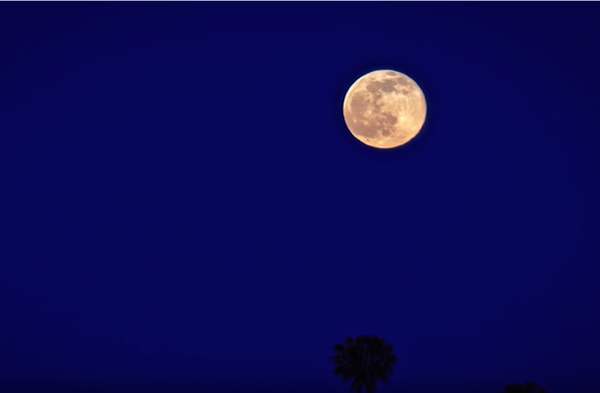The first full moon of the year – known as the wolf moon — will light up the sky on Friday while coinciding with a lunar eclipse.
The moon will appear full from Thursday night into Saturday morning, reaching peak fullness as it appears opposite of the sun at 2:21 p.m. on Friday, according to NASA. The moon then will fall in the constellation of Cancer as evening arrives.
- MORE NEWS
- GoFundMe scammer Mark D'Amico indicted on 16 more charges by feds
- Alleged New Jersey drug network busted for selling THC-infused Sour Patch kids, vape cartridges
- City pays $4.15 million to man wrongfully convicted of North Philadelphia murder
Algonquin tribes dubbed the January moon the wolf moon because wolves howl most often during the winter months, according to Farmer's Almanac. Colonists helped pass down the name. Other names used by Native Americans include the Spirit Moon, Goose Moon or Bear Hunting Moon.
The full moon will coincide with a penumbral lunar eclipse on Friday – the first of four penumbral lunar eclipses happening this year.
The moon will pass through the Earth's outer shadow, a penumbra, turning from white to a slight yellowish color. About 89% of the moon will be covered by the penumbra. The eclipse will begin at 12:07 p.m. and end at 4:42 p.m.
Unfortunately, the eclipse won't be visible in most of North America, including Philadelphia.
The brightest and only visible planet in the sky will be Venus. It will rise at 9:52 a.m. and set at 7:50 p.m. It will be visible in the southwest corner of the sky just after dusk.
The second full moon of 2020, known as the Snow Moon, will reach peak fullness on Feb. 9.
Follow Virginia & PhillyVoice on Twitter: @vastreva | @thePhillyVoice
Like us on Facebook: PhillyVoice
Add Virginia's RSS feed to your feed reader
Have a news tip? Let us know.

